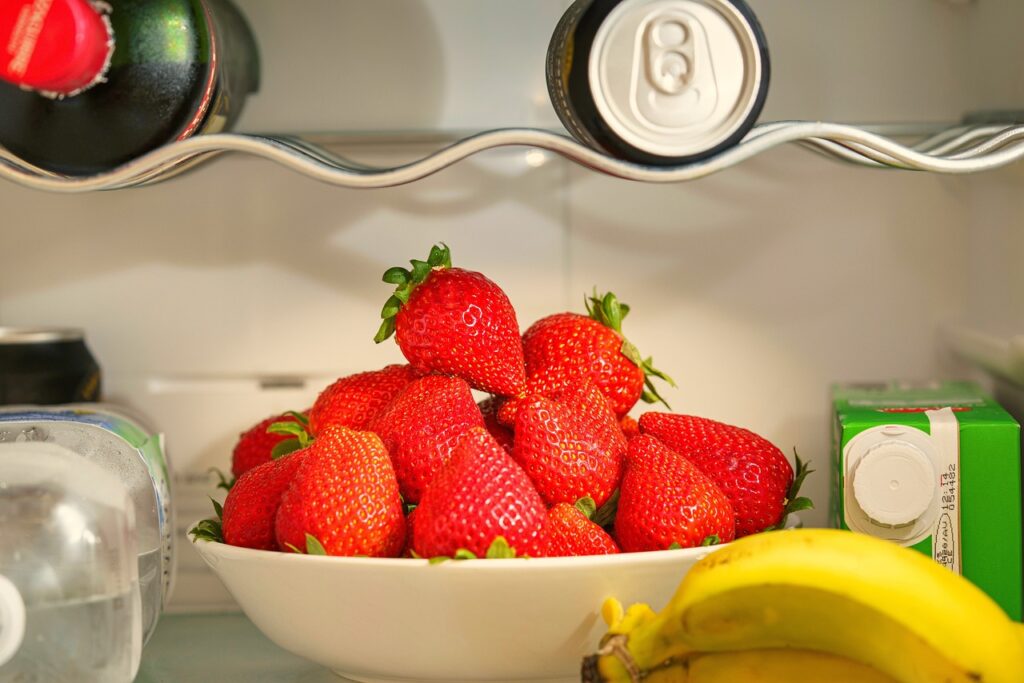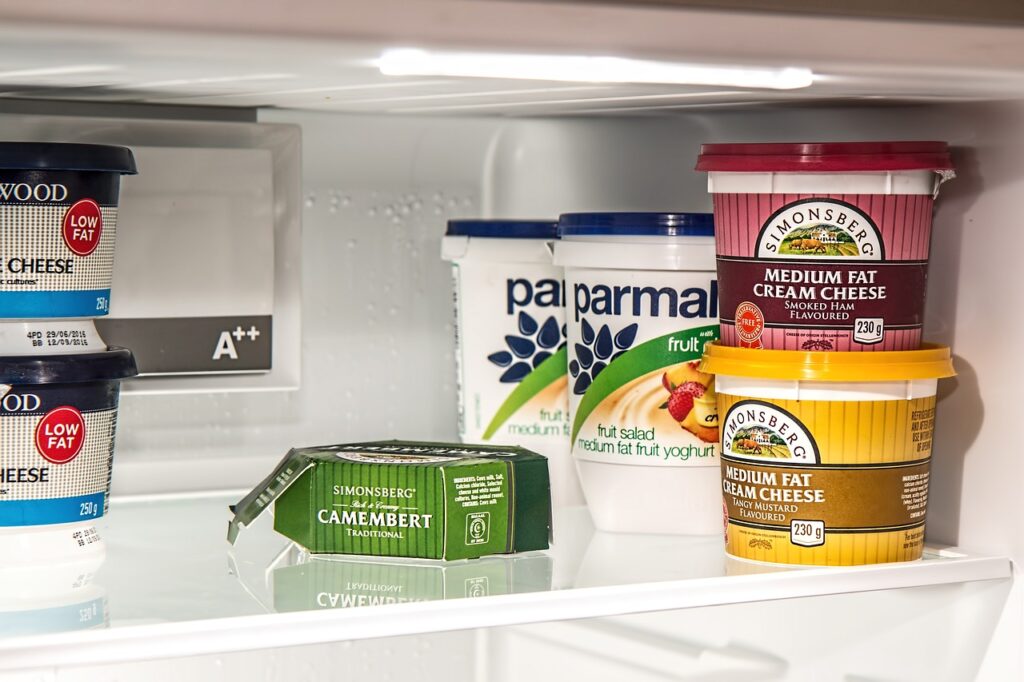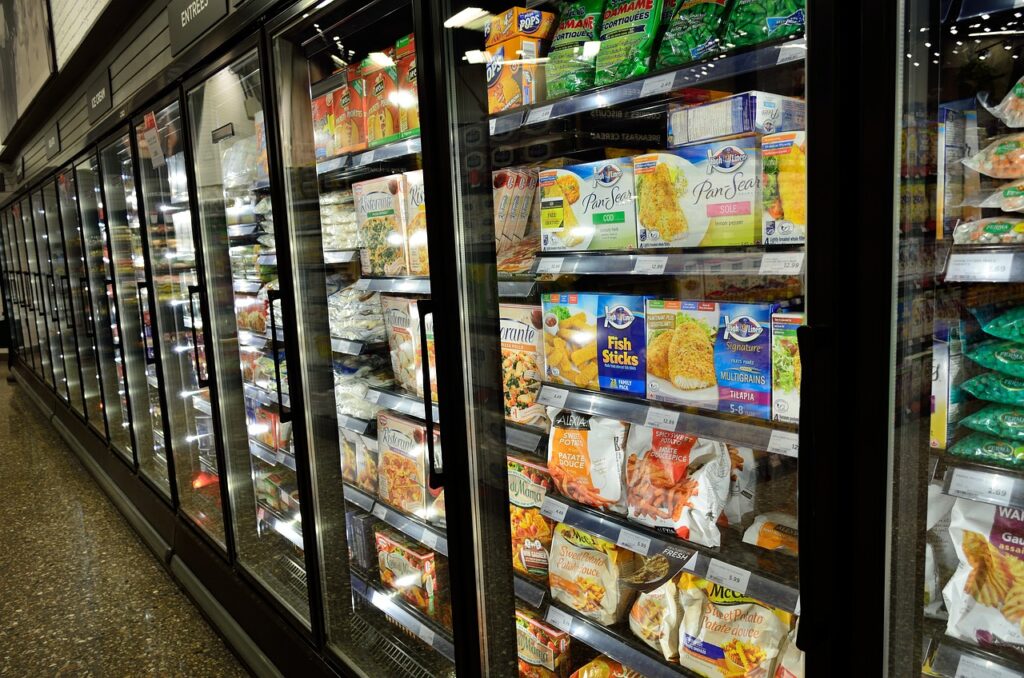The foremost reason why people welcomed the technological development of refrigerators was to enhance the shelf life of food. But would this indispensable electronic product be in every household if it killed nutrition? Simply put, refrigeration does not kill nutrients. Let us understand how this works to prevent taboos and clear confusion.
The adoption rate of refrigerators
Refrigerators were invented during the early 1910s. By the 1950s, over 90% of US households owned a refrigerator.
The adoption quickly increased across other countries and promoted welfare by preserving food and reducing food sourcing time.
Scientific studies were conducted to confirm that refrigeration aided nutrition and not otherwise. According to a 2005 study, household work decreased by 70% by introducing food durability between 1900 and 1970.
Traditionally, women have been homemakers across the globe. With the introduction of home appliances like washing machines, microwaves, and refrigerators, it has been easier for females to enter the job market alongside males. The phenomenon also created a surge in family income and well-being.
Refrigerator Usage in India
Across 90% of families have adopted refrigerators in China, the second-most populated country. But the adoption rate in India could be a lot higher.
According to a survey conducted in 2016, only 30% of Indian households have refrigerators. You might wonder if owning a refrigerator is still an aspiration for most Indians. However, competitive pricing makes refrigerators as accessible as smartphones.
It might shock you, but 4 out 10 families amidst the top 20% of richest Indian households do not own refrigerators. The 360-degree survey confirms that affordability is not why some people still refrain from using this appliance.
A study in 2017 explained one reason why refrigerators are not predominantly used in India. The supply of electricity in residential spaces plays a pivotal role. Almost 43% of rural India and 13% of urban India still face frequent power cuts. Some areas have around eight hours of no electricity supply every day. It is a constraint when making purchase decisions or developing the reliability of food storage and preservation.
Another aspect to consider is fighting patriarchal norms of putting complete household pressure on women. Since women still run most of the households in India, the expectation of females to serve freshly sourced and cooked food is massive.
Refrigeration makes life easy
Before diving into aspects like nutrition post-refrigeration, let us first consider the importance of electronic appliances and their role. Home appliances make our work easy, save time, and help us focus on other crucial aspects.
We can buy larger quantities at once when shopping for unprocessed food like fruits and veggies. Alternating a daily food-sourcing routine to weekly or biweekly routines frees you for other tasks.
It is true that sourcing fresh food allows you to have food at its highest nutritional value. However, it does not lose nutrients when you choose freezing over keeping them at room temperature.

Does refrigeration kill nutrition?
The concept of killing nutrition due to refrigeration is a myth. Food does not become unhealthy when we refrigerate it. Using a refrigerator primarily helps us retain food nutrition as it delays food from staling.
When you source fresh food, clean them, and add it to your freezer, you allow nutrient retention. All vitamins, minerals, fats, proteins, and carbs remain intact as produced and sold.
Fresh food, when kept at room temperature, loses moisture over time. There is a sudden drop in nutritional value because you refrained from slowing the decaying process.
Food starts losing nutritional value post-harvest. So, typically, when you buy a vegetable, you already get lower nutrition content than the fresh produce. According to a study, refrigeration improves antioxidant activities making food more nutritious. It suggested that frozen food stored at -20 degrees C had more nutrients than unfrozen food at a temperature of 4 degrees C during the testing period of three days.
What makes food stale?
Food becomes stale due to the change in moisture. Every food item has a certain moisture level, and it changes the staling process. For example, bread has around 30% of moisture. Once you open a loaf of bread and air passes through, it is prone to staling. Bread also goes through retrogradation that realigns strands of starch inside starch granules. So, freezing bread can increase shelf life than regular refrigeration.
How refrigeration retains nutrition?
Decaying of food happens when it is prone to microbe build-up. Microbes multiply in warm and humid temperatures. A refrigerator is a cool place and opposite a space that can grow microbes.
Fruits and vegetables thrive even after plucking and have their own way of preventing bacteria and fungi. But gradually, microbes take over if not stored at the right temperature. Food retains nutrition for 4-8 days, depending on how fresh you source it.
Nutrition loss happens during the cooking process and not the refrigeration process. Food that is rich in vitamin B and C and rich in antioxidants are heat sensitive. It causes nutritional loss as the flames turn high.
Since we can only consume most vegetables after cooking, the nutrition loss cannot bother us. A balanced diet including cooked vegetables with ample protein and fruits is key to maintaining nutrition.
Refraining from freezing food at 2 to 5 degrees C can increase bacteria buildup, leading to food poisoning. All food attracts pathogenic microbes if kept at room temperature.
A refrigerator is imperative if you eat meat and fish. Unlike plant-based food, dead animals attract microbes as they do not have life. That is why we freeze meat and fish products instead of regular refrigeration. Dairy products like milk and butter also require refrigeration to prevent rapid spoilage.
Benefits of refrigeration
Here are reasons why more and more households in India must adopt refrigeration:
Prevents wastage and overeating
Every unfinished bite contributes towards environmental damage and simultaneously burns your pocket. Alternatively, we turn to overeating when we neither want to waste food nor have the means to preserve it for later.
Refrigeration allows us to turn leftover dinner into breakfasts the following day. It helps us optimally use food resources to minimize wastage.
Helps preserve perishable products
Milk, paneer, cheese, and butter are dairy products and examples of perishable goods with little shelf life. You can make them last a little while with refrigeration, but without it, they will last a day or two.
Recently a video of Amul Lassi went viral, exposing that their products expired before the expiry date. There is an ongoing inquiry about the product, but Amul has refused to accept the claims.
Goods like milk and lassi sold in tetra packaging must be properly examined before consumption. Brands sell these products as safe to consume, while the reality might be far from this.

Extends shelf life
After perishable products, items like sauce, mayonnaise, pickles, and vinegar require refrigeration for extended shelf-life. It allows you to buy larger quantities of products and store them at least for months to use as and when required.
Cooked food also requires refrigeration to prevent staling. We need refrigerators the most in the summertime as food can spoil if kept out for a few hours.
Aids buying in large quantities
A monthly visit to the supermarket on a Sunday afternoon frees us from multiple shopping sprees. Not having multiple ingredients at the drop of a hat can hinder the cooking process. So, buying in bulk lets you have products handy and eases cooking various items.

Tips to optimally use refrigeration
Freezing food helps us:
Restrict the exposure of food to air
Have you ever wondered why our mothers scolded us for keeping the refrigerator door open for long?
Exposing food to air makes them vulnerable to oxidative rancid flavours. It is also the reason why the usage of airtight containers is so popular. When you wrap or keep food protected through airtight products, it enhances shelf-life.
Pick out the bad ones
With delivery apps making groceries a few clicks away, one disadvantage it brings along is low-quality products. It might happen rarely, but the exchange process often becomes time-consuming and expensive.
In such cases, you should use the bad ones first and refrigerate the good ones later. Refrigerating bad food products might do more harm than good as they can contaminate the good ones. Moreover, in this case, freezing might not kill bacteria.
Blanch before freezing
The blanching process makes you keep vegetables dipped in hot water before moving them to icy temperatures. It helps you prevent enzymatic actions on the veggies. It also softens the outer layer while keeping the inside layer crisp.
Final Thoughts
At Half Life To Health, we focus on making women’s lives healthier and happier. The first step is acknowledging and fighting the taboos that hold us back.
If you know someone who refrains from using refrigerators in 2023, share this post with them to make their lives easier. If you want to transform your lifestyle and turn to better eating habits, contact us today.
References:
(No date) Sowmya Dhanaraj Vidya Mahambare poonam munjal – mse.ac.in. (Accessed: 31 May 2023) Available at: https://www.mse.ac.in/wp-content/uploads/2021/05/Working-Paper-199.pdf.
(No date a) Engines of liberation – Jeremy Greenwood. (Accessed: 31 May 2023) Available at: https://www.jeremygreenwood.net/papers/engines.pdf.

